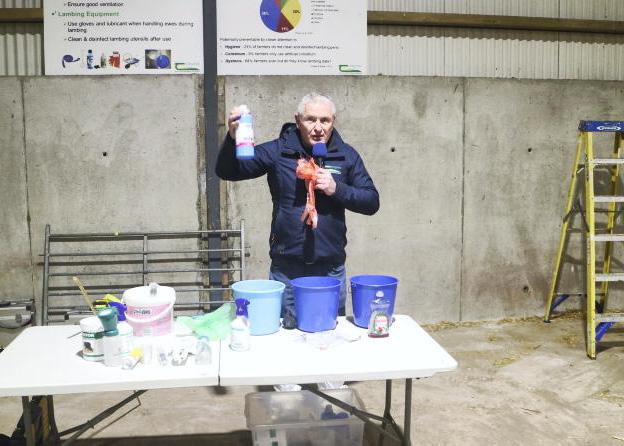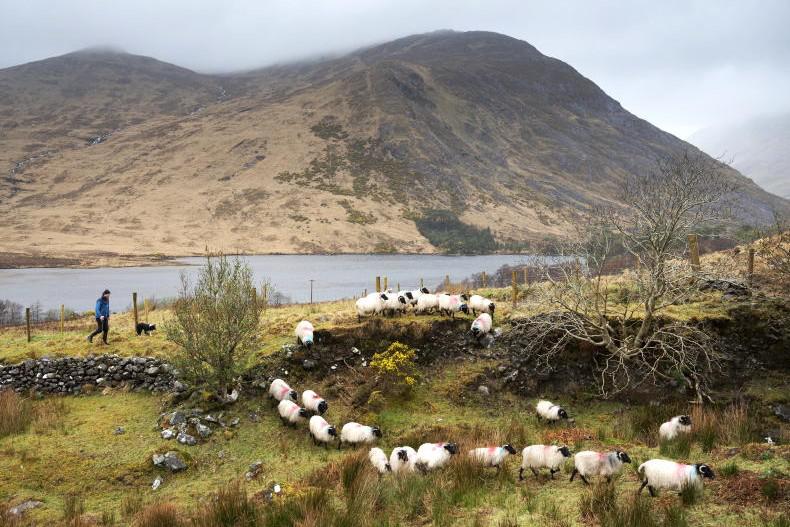The nightmare scenario for Irish agriculture is Britain dropping out of the EU with no deal at the end of next March but at a briefing in London earlier this week, we were assured that the UK was “working hard” to ensure there was a deal.
They have rightly identified their own exporting sheep sector as the most vulnerable sector in the immediate future if there is no deal but the policy thinking goes well beyond that. Underlying the entire agricultural approach is the fact that food and drink processing is Britain’s biggest manufacturing industry and this depends on a profitable primary sector but, at the same time, the picture is complicated by a policy to adjust the present payments to farmers to pay more for environmental services and to let some of the efficient commodity producers survive on their own feet “at world market prices”.
While the existing Basic Payment system and amounts to individual farmers will continue to 2020, there is likely to be a shift in the destination of the payments after that, even though the total sum of approximately £3bn is promised to last until 2022.
Science
The British have always been advocates of following solid science so they will continue to back the use of Roundup (glyphosate) and were disappointed, to put it at its mildest, at the recent European Court decision to treat gene-editing in the same way as GM.
We can expect a reversal of this policy once they leave as well as a continuation of the strong scientific programmes in sensor technology, etc.
On the environment, they intend to offer land management contracts to farmers after 2020 for anything up to 10 years - the cash for these will come from the Basic Payment funds so there will be losers. The shape of these land management contracts is not clear – the whole concept of how to define and pay for public goods is still vague. It’s easy to say we want clean air, water and healthy soils as well as landscape and habitats.
It is quite a different job to have a clear and fair system of payments that isn’t over bureaucratic as the current system is admitted to be. It is, however, clear that there will be special payment for upland farms.
Dairying is also seen as a vulnerable sector with milk consumption declining and a need for help to deal with ammonia emissions. There was a repeat of the usual assurances that future trade deals will not be let compromise existing standards and that a food strategy paper for the British food industry in a world context will be published. From an Irish perspective, the UK is such a large, important and close market that we will have no option but to follow developments there closely and react accordingly.
Read more
Brexit endgame in sight as crunch 'tunnel' talks begin
Any tariffs on Irish beef would ‘wipe out’ the industry – Coveney
The nightmare scenario for Irish agriculture is Britain dropping out of the EU with no deal at the end of next March but at a briefing in London earlier this week, we were assured that the UK was “working hard” to ensure there was a deal.
They have rightly identified their own exporting sheep sector as the most vulnerable sector in the immediate future if there is no deal but the policy thinking goes well beyond that. Underlying the entire agricultural approach is the fact that food and drink processing is Britain’s biggest manufacturing industry and this depends on a profitable primary sector but, at the same time, the picture is complicated by a policy to adjust the present payments to farmers to pay more for environmental services and to let some of the efficient commodity producers survive on their own feet “at world market prices”.
While the existing Basic Payment system and amounts to individual farmers will continue to 2020, there is likely to be a shift in the destination of the payments after that, even though the total sum of approximately £3bn is promised to last until 2022.
Science
The British have always been advocates of following solid science so they will continue to back the use of Roundup (glyphosate) and were disappointed, to put it at its mildest, at the recent European Court decision to treat gene-editing in the same way as GM.
We can expect a reversal of this policy once they leave as well as a continuation of the strong scientific programmes in sensor technology, etc.
On the environment, they intend to offer land management contracts to farmers after 2020 for anything up to 10 years - the cash for these will come from the Basic Payment funds so there will be losers. The shape of these land management contracts is not clear – the whole concept of how to define and pay for public goods is still vague. It’s easy to say we want clean air, water and healthy soils as well as landscape and habitats.
It is quite a different job to have a clear and fair system of payments that isn’t over bureaucratic as the current system is admitted to be. It is, however, clear that there will be special payment for upland farms.
Dairying is also seen as a vulnerable sector with milk consumption declining and a need for help to deal with ammonia emissions. There was a repeat of the usual assurances that future trade deals will not be let compromise existing standards and that a food strategy paper for the British food industry in a world context will be published. From an Irish perspective, the UK is such a large, important and close market that we will have no option but to follow developments there closely and react accordingly.
Read more
Brexit endgame in sight as crunch 'tunnel' talks begin
Any tariffs on Irish beef would ‘wipe out’ the industry – Coveney









SHARING OPTIONS